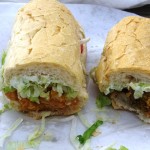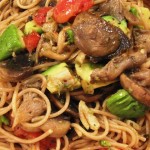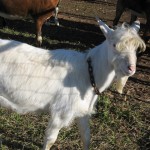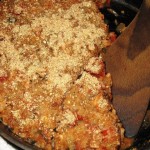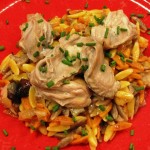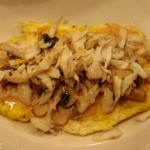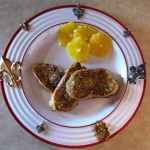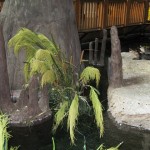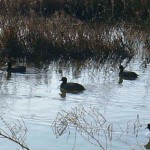Cajun French: le grue (lu grū) – grits
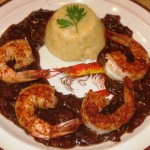 What started out as left over crawfish and carrot tops over girts for breakfast turned into Shrimp Grillades and Grits. Traditionally grillades are slow cooked meat in rich gravy. We enjoy grillades and since we no longer eat meat wanted to try shrimp grillades. Today was the day and what a dish! Another difference to the traditional grillades is the shrimp do not cook in the gravy. The shrimp are pan fried and plated in the gravy just before serving. As usual we used shrimp from the Anna Marie. Even though this dish is very rich, it is not high fat. The richness comes from using red wine in the gravy. We plated the dish on plates with a shrimp design. Wanting to highlight the design as well as the food we plated the dish two ways.
What started out as left over crawfish and carrot tops over girts for breakfast turned into Shrimp Grillades and Grits. Traditionally grillades are slow cooked meat in rich gravy. We enjoy grillades and since we no longer eat meat wanted to try shrimp grillades. Today was the day and what a dish! Another difference to the traditional grillades is the shrimp do not cook in the gravy. The shrimp are pan fried and plated in the gravy just before serving. As usual we used shrimp from the Anna Marie. Even though this dish is very rich, it is not high fat. The richness comes from using red wine in the gravy. We plated the dish on plates with a shrimp design. Wanting to highlight the design as well as the food we plated the dish two ways.
Mais C’est Bon!

